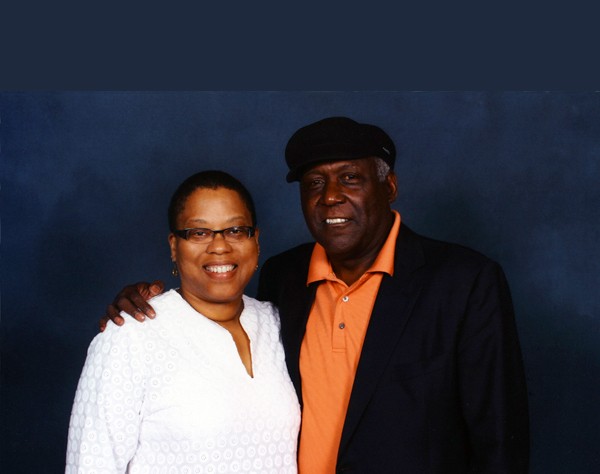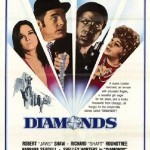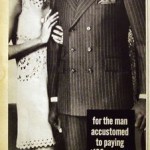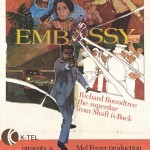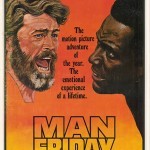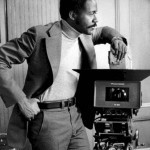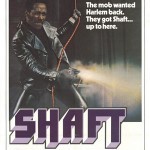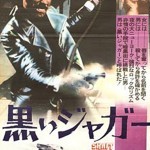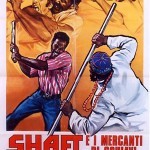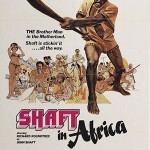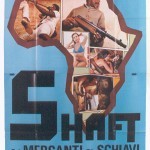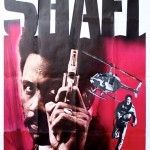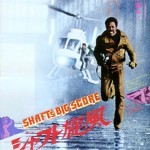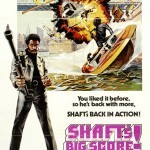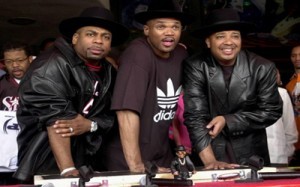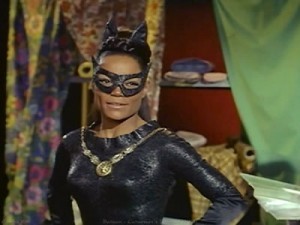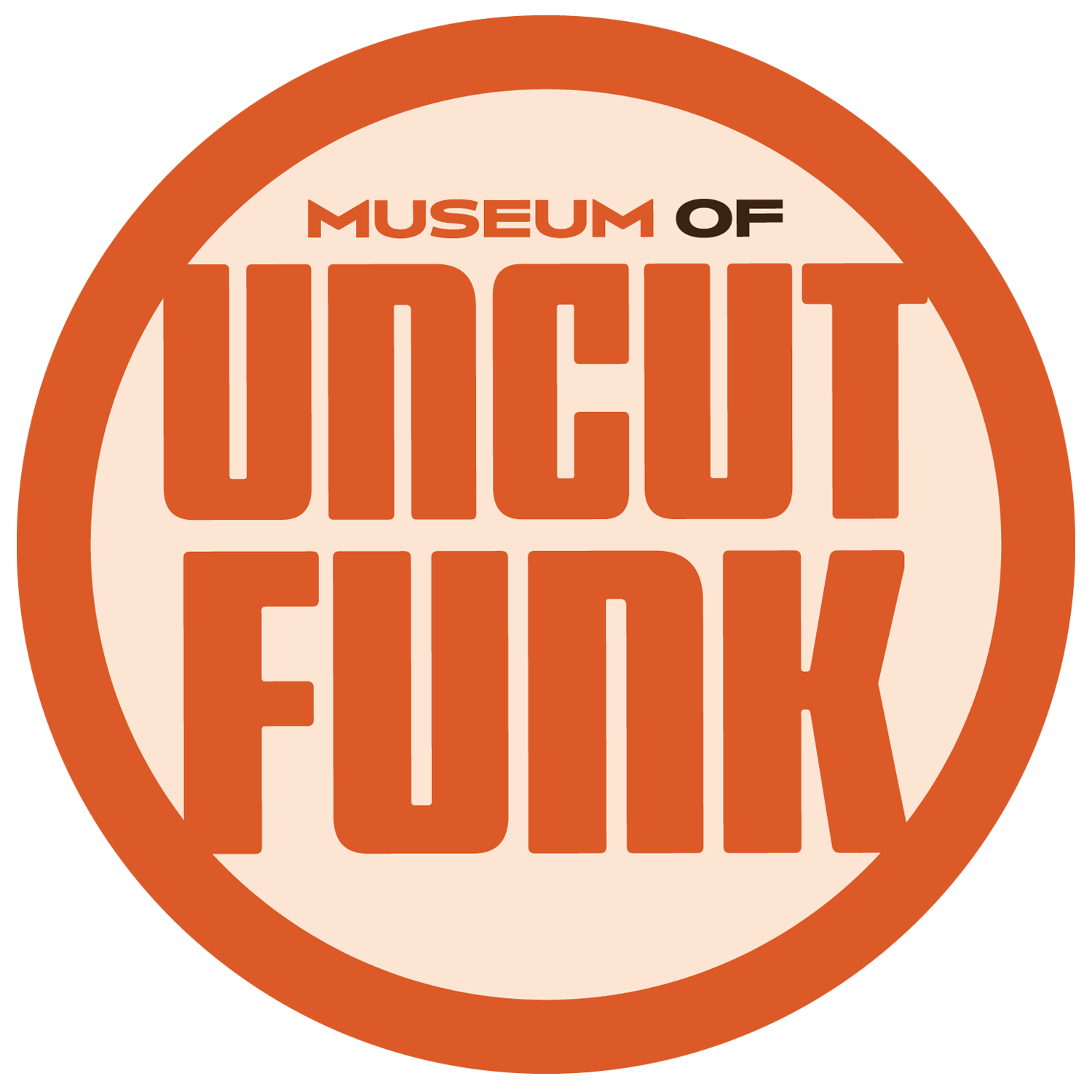Who’s the Black private dick
That’s a sex machine to all the chicks?
(Shaft!)
You’re damn right
Who is the man
That would risk his neck for his brother man?
(Shaft!)
Can ya dig it?
Who’s the cat that won’t cop out
When there’s danger all about
(Shaft!)
Right on
You see this cat Shaft is a bad mother–
(Shut your mouth)
But I’m talkin’ about Shaft
(Then we can dig it)
He’s a complicated man
But no one understands him but his woman
(John Shaft)
That’s right John Shaft, the Black private dick who is better known as Richard Roundtree. I had the pleasure of meeting Mr. Roundtree at the Philadelphia Comic Con. I must say he is one of the friendliest celebs I’ve ever met. I spoke to Richard briefly about The Museum of UnCut Funk and our mission to preserve 1970’s Black culture. Like most he was humble and appeared interested in wanting to know more about our project. So as promised, I have created this post in our Kool Cats and Hip Chicks blog dedicated to Richard Roundrtee.
 Born in 1942 in New Rochelle, New York to a family of modest means, Richard Roundtree found his first success not as an actor, but on the football field. As a star player on New Rochelle Highs undefeated 1960 football squad, Roundtree received a sports scholarship to Southern Illinois University. However, while at the university the attractive 6’3 youth came upon the unique opportunity to become a fashion model for Ebony Magazine. Roundtree began appearing regularly in Ebony, which lead to him gaining the opportunity to tour as part of Ebony’s Fashion Fair, bringing him to 79 US cities in 90 days. As a result of that experience, Roundtree learned that he loved the attention that he received in front of a crowd, and had a natural charisma for an audience. Upon graduation, Roundtree returned to New York and decided that he wanted to remain in that spotlight and started acting lessons. Within a short time Roundtree became a member of New York’s Negro Ensemble Company, in which he gained early acting success by playing boxer Jack Johnson in an off Broadway production of The Great White Hope.
Born in 1942 in New Rochelle, New York to a family of modest means, Richard Roundtree found his first success not as an actor, but on the football field. As a star player on New Rochelle Highs undefeated 1960 football squad, Roundtree received a sports scholarship to Southern Illinois University. However, while at the university the attractive 6’3 youth came upon the unique opportunity to become a fashion model for Ebony Magazine. Roundtree began appearing regularly in Ebony, which lead to him gaining the opportunity to tour as part of Ebony’s Fashion Fair, bringing him to 79 US cities in 90 days. As a result of that experience, Roundtree learned that he loved the attention that he received in front of a crowd, and had a natural charisma for an audience. Upon graduation, Roundtree returned to New York and decided that he wanted to remain in that spotlight and started acting lessons. Within a short time Roundtree became a member of New York’s Negro Ensemble Company, in which he gained early acting success by playing boxer Jack Johnson in an off Broadway production of The Great White Hope.
Roundtree would make his move from stage to film on Candid Camera with Allen Funt. Funt was producing a candid camera project that was going to challenge the racial and sexual attitudes of common American people. Deemed far too racy for television, the project was slated for the big screen. Titled: What Do You Say to a Naked Lady, Funt wrote a scenario where a racially mixed couple would appear at a New York train station, and Funt’s people would be on the scene in order to record the reactions of people waiting for their train. Richard Roundtree was cast as the male partner in the mixed couple. However, little acting was required. Roundtree just had to show up with a white girl and make it convincing to everybody around them that they were an item. For a stud like Roundtree this wasn’t much of a problem. While What Do You Say to a Naked Lady was an interesting snapshot into the sexual attitudes of 1970’s America, the film didn’t become very popular. However, success was around the corner for Richard Roundtree. MGM Studios had a new project in the works and life for Richard Roundtree was about to change forever.
While rival studio Warner Brothers was working on Dirty Harry, starring Clint Eastwood, MGM Studios was looking for a similar type of hard boiled cop film to compete with what they knew was going to be a huge hit. Originally MGM planned to make another generic copy cat film featuring another hard boiled white police detective. However, after the independent success of early blaxploitation film Sweet Sweetback’s Baadasssss Song, studio executives realized that there was a giant, untapped Black movie audience. What was needed to make MGM’s film unique, and to stand out against Dirty Harry as being distinctly different, was to put a Black man in the lead of the film. It had never been done before, and with the political tide turning away from Dr. Martin Luther King’s passive resistance of the 1960’s to the far more vocal Black power movement of the Black Panthers in the 1970’s, the time was right for an ass kicking, tough talking Black action hero. MGM got word that New York Times editor Ernest Tidyman had a novel about a Black detective named John Shaft about to be published. Without the book even hitting the bookstands yet MGM bought the rights to the story. Director and photographer Gordon Parks was brought in to direct the film, and funk musician Issac Hayes was hired to create the soundtrack. Now all they had to do was find the right kind of man to bring Shaft to life.
Despite his lack of film credits, Richard Roundtree beat out future blaxploitation star Ron “Superfly” O’Neal, as well as Issac Hayes who, at one time, was being considered for the role on top of his soundtrack credit. With his cool confidence and good looks Richard Roundtree fit exactly what MGM wanted. He was tough enough to unapologetically throw a thug out a window to his death, but had a smile and a laugh for the people he liked. He could shoot guns, lay women and kick ass.
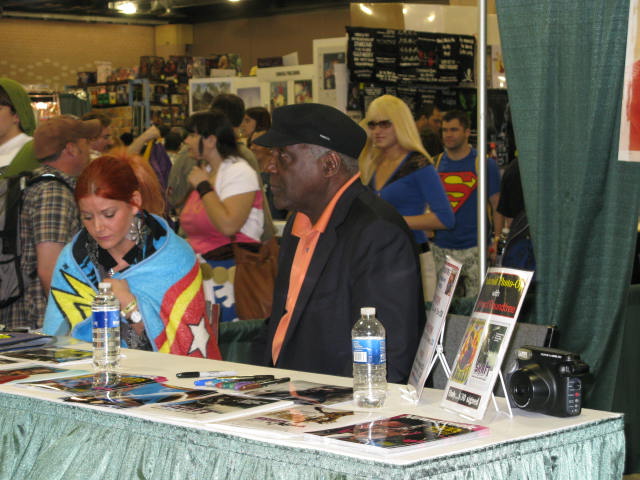 He was John Shaft – one bad mother…(shut your mouth). Shaft was released in July, 1971 and received a thunderous response. A box office triumph, it became a favorite of both Black and white audiences alike, and even won Issac Hayes an Oscar for his score. Most of all, it put Richard Roundtree on the pop culture map. His portrayal of John Shaft became one of the most important roles of the 1970’s, opening the flood gate for the popularity of blaxploitation films, and giving Black kids a positive hero to look up to. Sure, John Shaft wasn’t perfect. He did use violence as the means to an end, and he might have been a bit misogynistic. However, Richard Roundtree made Shaft a man to be respected and to be looked up to. He was not a thug. He was not a pusher. He was well groomed, well dressed, intelligent, educated, and tough as hell. He was a positive role model that Black kids could strive to grow up to be like, and in an industry that had a history of creating negative Black stereotypes, that made Roundtree’s portrayal of John Shaft truely groundbreaking.
He was John Shaft – one bad mother…(shut your mouth). Shaft was released in July, 1971 and received a thunderous response. A box office triumph, it became a favorite of both Black and white audiences alike, and even won Issac Hayes an Oscar for his score. Most of all, it put Richard Roundtree on the pop culture map. His portrayal of John Shaft became one of the most important roles of the 1970’s, opening the flood gate for the popularity of blaxploitation films, and giving Black kids a positive hero to look up to. Sure, John Shaft wasn’t perfect. He did use violence as the means to an end, and he might have been a bit misogynistic. However, Richard Roundtree made Shaft a man to be respected and to be looked up to. He was not a thug. He was not a pusher. He was well groomed, well dressed, intelligent, educated, and tough as hell. He was a positive role model that Black kids could strive to grow up to be like, and in an industry that had a history of creating negative Black stereotypes, that made Roundtree’s portrayal of John Shaft truely groundbreaking.
Richard’s 1970’s Filmography:
What Do You Say to a Naked Lady? (1970)
Shaft (1971)
Embassy (1972)
Shaft’s Big Score (1972)
Firehouse (1973)
Charley One-Eye (1973)
Shaft in Africa (1973)
Earthquake (1974)
Man Friday (1975)
Diamonds (1975)
Portrait of a Hitman (1977)
Escape to Athena (1979)
A Game for Vultures (1979)
Day of the Assassin (1979)
Richard Roundtree movie posters from The Museum of UnCut Funk Movie Poster Collection.

